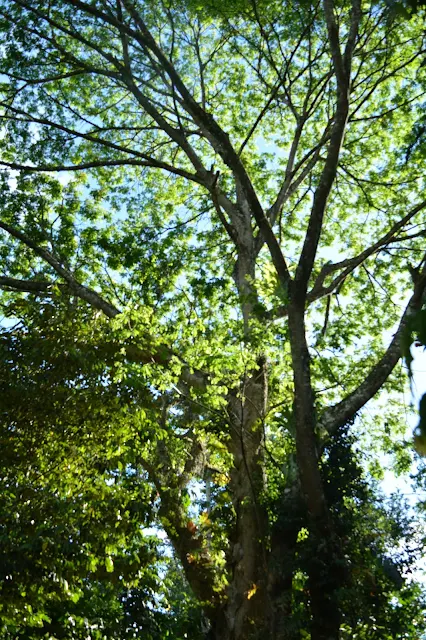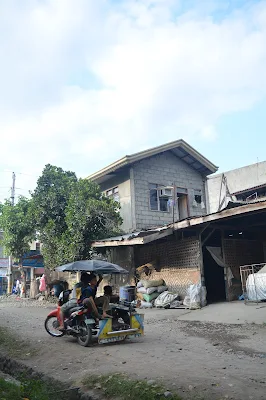I looked up to see the leaves of the durian tree days after we
brought Pa home. We were still in a
state of shock.
It was the year of the severe drought and a clump of durian fruits
have been growing abundantly above us. But the heat was so intense that in the
afternoon, we can hear the fruits falling on the ground. We were worried that the tree
won’t survive. We painstakingly watered it, just as we nursed a tiny ginger
plant struggling to survive in a pot just a couple of steps nearby. But sometimes, love can kill. I
discovered one morning the abnormal wetness of the soil in the ginger pot, and discovered my sisters Eve and Ione, and even Titing, the house help, lavishing it with water.
“You’re killing it,” I said, seeing consternation on their faces. “Water it only once a day. Too much love can suffocate.”
“You’re killing it,” I said, seeing consternation on their faces. “Water it only once a day. Too much love can suffocate.”
To my surprise, they listened. The plant only got just enough water
that it needed; and soon enough, it was growing well. Rona, the wife of Eve’s
driver who came by for a visit had collected the fallen durian fruits, because
they were so small and beautiful, and would look good on a Christmas tree.
But Christmas was still so far away. It was still after Easter,
which like in the previous year, we spent inside a hospital. As soon as we
arrived home, we made Pa lie on a bed we put right in the sala. We brought a pile of pillows to prop him up but we could never make him rest because he always wanted to move. It was as if there was no position
comfortable enough for him. His daughters, whom he resented for being girls,
had a hard time coping. He made us
wish we had a brother. From the sheer physical strain of lifting him and helping him to bed, an act that had to be repeated over and over again until our own bodies threatened to collapse, we began to wish we were men.
Stepping out of the house, I found myself under the shade of the
durian tree. I looked up to see the leaves, and saw the blue sky instead.















